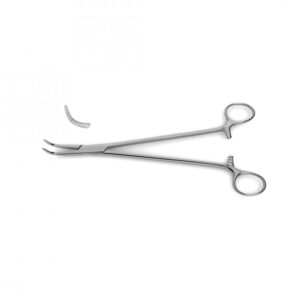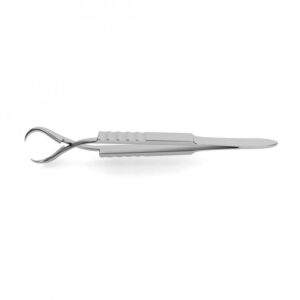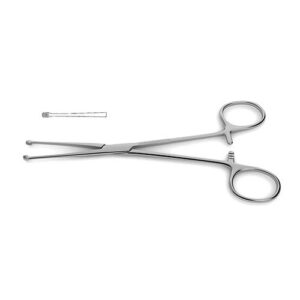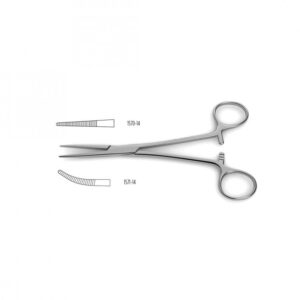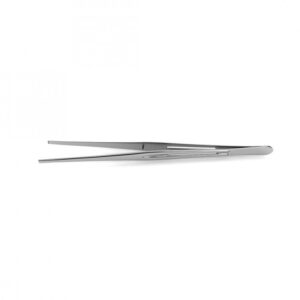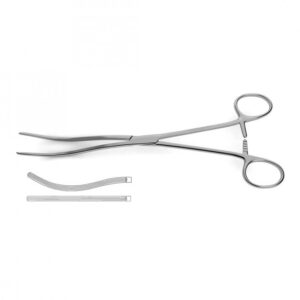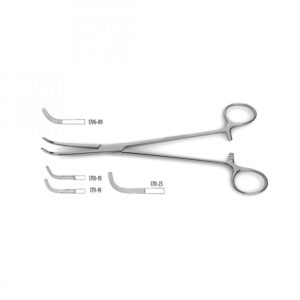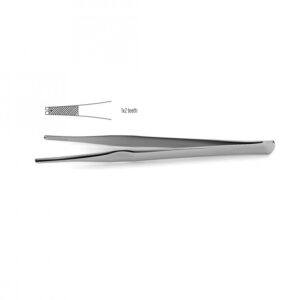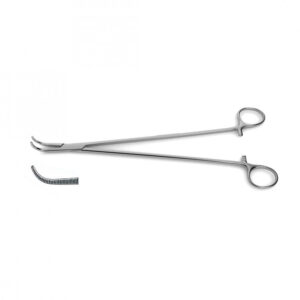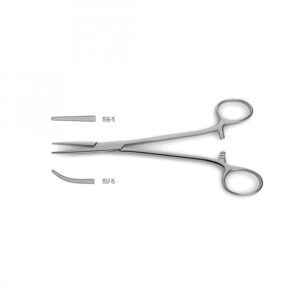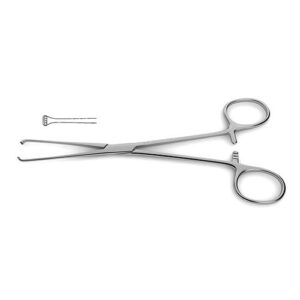Jones Thoracic Clamp
Jones Thoracic Clamp
9" (22.9 cm)
Jones Thoracic Clamp may be used during thoracic procedures in order to clamp off ruptured blood vessels or hold tissue. The ring-handles and the 9" long length adds more force when clamping, and the curved serrated jaws provide the tight grasp. This forceps is polished to a dull, satin finish to minimize any glare from operating room lights.
Jones Towel Clamp
Judd-Allis Tissue Forceps
Kelly Forceps
Kelly Forceps
Kelly Forceps are made from premium German stainless steel and are a type of hemostat that can be used in medical situations that require blocking a hemorrhaging blood vessel. The curved or straight patterned jaws are partially serrated, which may allow for blunt dissection as well. These forceps are offered in two different sizes, including a "rankin," which signifies a 6 ?" length.
Kelly Tissue Forceps
Kelly Tissue Forceps
3x4 teeth, 9" (22.9 cm)
Kelly Tissue Forceps are handcrafted from surgical grade German stainless steel. Designed with 3x4 teeth, 9" in length and a narrow silhouette, this instrument is ideal for demands of cardiovascular procedures. The slotted handle ensures this instrument is lightweight and easy to manipulate.
Kocher Clamp Forceps
Longitudinal serrations, 5" (12.7 cm) jaw length, 10-1/4" (26.0 cm)
Kocher Clamp Forceps have longitudinal serrations on its 5" jaw length. These serrations help to reduce the chances of slippage to the tissue or intestines that are being clamped. These ring-handled clamp forceps also have the option of a straight or curved jaw.
Kocher Forceps
Kocher Forceps
1x2 teeth, 5-1/2" (14.0 cm)
Kocher Forceps contain 1x2 teeth on straight or curved jaws to avoid slippage when trying to grip arteries. Although this hemostatic forceps is typically used for general surgeries, it may also be applied to more specific procedures such as draining of the gallbladder or removal of the thyroid.
Lanes Tissue Forceps
Lanes Tissue Forceps
cross-serrated
Lanes Tissues Forceps are handcrafted from surgical grade German stainless steel. Designed with cross-serrations and either 1x2 teeth or 2x3 teeth, these tissue forceps are used in ob-gyn procedures. The smooth, flat handle with the indented grip assures comfort and control for the surgeon.
Lawrence Forceps
Lawrence Forceps
jaws strongly curved
Lawrence Forceps are comprised of heavily serrated jaws that are strongly curved and may reach areas that are harder to attain. Due to the locking ratchet mechanism on the ring-handles, this forceps may be used as a clamp to control bleeding in arteries or vessels in general surgeries, specifically thoracic operations. To accommodate different procedures, this instrument is offered in two different lengths.
Leriche Artery Forceps
Artery Forceps
6" (15.2 cm)
Leriche Artery Forceps have an overall length of 6" that feature vertically serrated jaws that come in a straight or curved design. The jaws also have blunt tips and are able to lock due to the ratchet mechanism on the inner part of the ring-handles. This ratchet allows for a tight close on broken blood vessels.
Lockwood-Allis Tissue Forceps
Tissue Forceps
4x5 teeth, 6-1/4" (16.0 cm)
Lockwood-Allis Tissue Forceps are a straight pattern that incorporates a locking ratchet feature on the inner part of the ring-handles. This mechanism is designed to keep the forceps closed once they are applied at the desired location. The tips of the jaws contain 4x5 teeth that contribute to the tight hold of the tissue that needs to be held during general surgical procedures.

